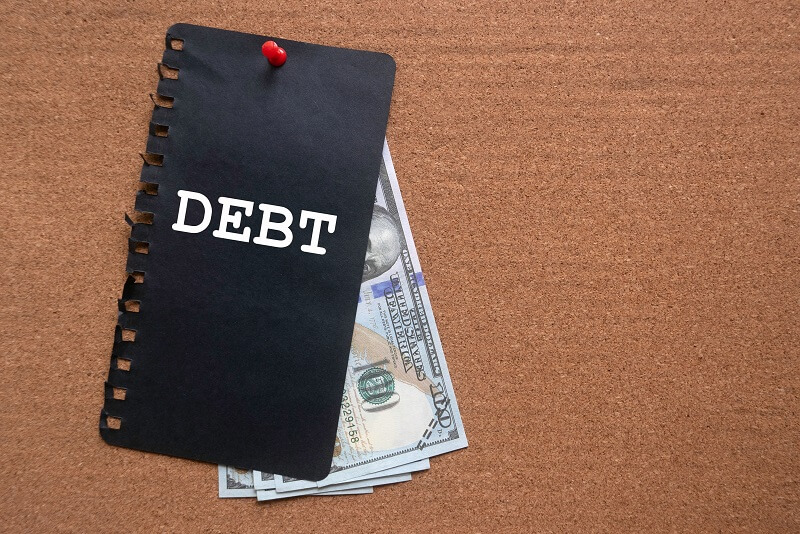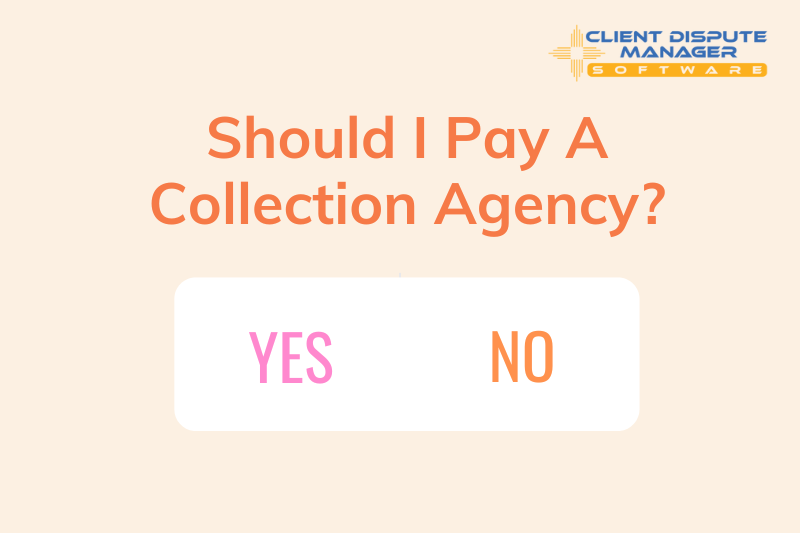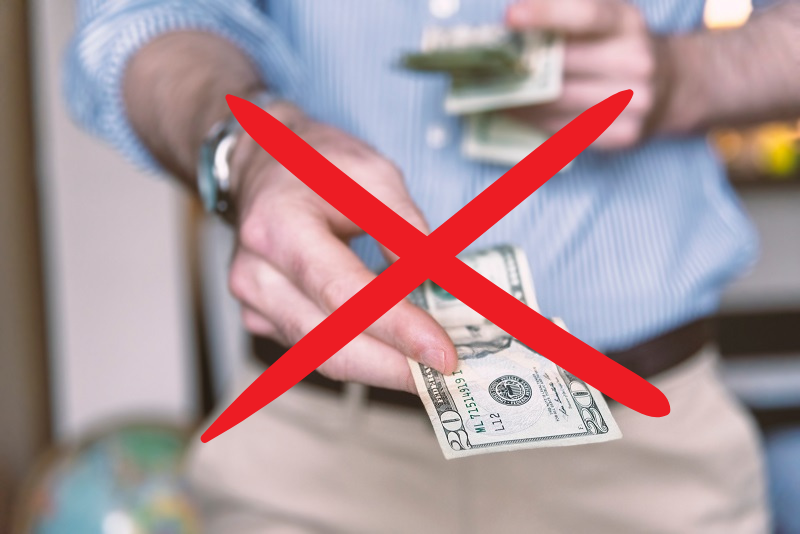Do you have a default on a loan, credit card, or even monthly internet utility bill payment? If so, chances are that your account will be sent to the collection agency. They are third-party companies hired to go after the firm’s unpaid debts. However, you may have heard never pay collections from many people around you.
And, now, you would like to know the truth. So, what happens if you never pay collections? Besides, do you have to pay collections?
Collection agencies employ different tactics to recover unpaid debt. And they may start by harassing people with phone calls. However, depending on your current situation, you may not even have to pay a collector. Read on to find out more about it.
Do Old Debts Cause Problems?
At first, it might look compelling to pay off the debt to the collection agency. That’s because it is the easiest way to make things right and make the collection agency leave you alone. However, it may not be the most appropriate solution for you in certain cases.
No doubt, paying a debt collection agency allows you to lead a peaceful life. But this is not the complete story. Rather, the history of your unpaid debt will still reflect on your credit report for a couple of years.
Besides, the actual amount of debt is no longer the only factor. Collection agencies will raise a red flag on the credit report whether the debt was $200 or $100,000. As a result, it adversely impacts your ability to approach secured loans in the coming years.

What makes the situation worse is that intent plays a tiny role in terms of debt collection cases. Sometimes, debtors don’t even know that they owe money. And it happens to many debtors all the time.
In addition, a creditor might send a debt notice to the borrower’s old address. As such, the borrower won’t receive it, and they go on with their lives. But they are unaware that the debt is following them.
This residual debt has surprising effects and makes it difficult for you to procure new loans. Getting student loans, mortgages, home improvement, or car financing becomes significantly difficult if you have bad credit.
Still, this is not the end. Moreover, bad credit makes it difficult for you to rent a home or even open a streaming account. Apart from that, paying an outstanding debt to a collection agency can at times negatively impacts your credit score.
While it might surprise you, any kind of action on your credit report hurts your credit score. And that even includes paying back loans. Therefore, if you have an unpaid loan of one or two years old, check first as it can temporarily cause a drop to your credit score.
How To Decide Whether Or Not To Pay A Collection Agency?

There are no easy ways for a perfect solution when it comes to debt collection cases. Although ignoring a collection agency might be an option in some cases, you must understand the consequences if ever you decide to do so. Here are some important factors that you should consider before making the final decision:
If you don’t pay the collections agency, they will take legal action against you by filing a lawsuit. Keep in mind that a collections agency isn’t a joke. While you may think they might go away if you ignore them, the situation only worsens.
Besides, whenever you receive a complaint from the debt collector, you have to respond within a specific timeframe. And the same would be determined by your local jurisdiction. For example, in the US, the timeframe is 14 to 30 days.
When a collections agency wins the lawsuit, they have many options to recover the debt. For example, they can garnish earnings for collecting the debt. A garnishment is a special kind of court order that authorizes the collection agency to take money directly from the debtor’s earnings.
And the money goes toward repayment of the debt that they owe. Hence, consider this important outcome before ignoring a collection agency’s payment demands.
- In addition, there is another important thing to keep in mind. The interest accumulated on your unpaid debt tends to pile up over time. That way, if you don’t pay the debt collection agency, the amount of money you owe them will keep increasing.
- On the other hand, paying a collections agency sometimes makes sense. Don’t forget that collection agencies buy your debt much cheaper than it costs originally. As such, you can negotiate with them and offer to pay off the debt at a much lower amount.
Moreover, debt collectors might send you a letter that says the debt has been paid. Now, you can use the letter to make corrections about the debt being paid in your credit report.
Lastly, remember to pay the debt to the right person. Do proper research when you get a letter from the collections agency demanding money. Sometimes, collection agencies buy and sell the debt to one another.
So, don’t assume you are paying the debt to the right collection agency. Make sure your debt is still the same and hasn’t changed hands.
Should You Not Pay A Collection Agency?

Here are are some scenarios where not paying collections become an option for individuals:
Scenario 1: Never pay collections if you don’t have an idea about the debt. In short, if you don’t owe the money, there is no point in paying it to them as it is inaccurate. So, if an agency is after you for a debt you don’t know about, use a Debt Validation letter. When you send the letter, they will be required to investigate so they can validate your debt.
Scenario 2: Suppose you don’t have a property or income and plan not to have property or income in the coming years. In that case, you are referred to as ‘judgment proof.’ But if you plan to own anything or start earning again, you aren’t judgment-proof.
Scenario 3: Do you have to pay collections if you are planning to settle your unpaid debt for less? There are some who will not pay the collectors until such time it would force the collector to take legal action against them. Next, they would send a summons & complaint letter when they are being sued. The agency will most likely settle the debt for less.
Scenario 4: If you find the statute of limitations expired, you have an option not to pay collections. Even the debt collector can’t sue you for the debt.
Scenario 5: Whenever the collections agency fails to show you the ownership of the debt, you don’t have to pay them. The sale of debt that starts from a creditor and ends with a collector isn’t a smooth road.
A collection agency that hounds you might not prove that they own your debt. So, if they fail to produce the same, you aren’t obligated to repay them.
Scenario 6: If you don’t want to pay the money to someone other than your real creditor, you may choose not to pay the collections agency. If a collection agency is chasing you, chances are that the original creditor might have sold your debt.
Many people believe that it is unethical for creditors to sell their debts. And they argue that they don’t have an ethical obligation to pay someone instead of the original creditor.
On the other hand, you may pay a debt collector –
- If you owe the amount of debt in full and the agency owns it too
- If you like to resolve the issue fast and you got the money as well
- If you are a morally responsible person and you will make the repayment regardless of who owns it
Typically, most people try to go for a settlement. Whenever a collector is after you for unpaid debt recovery, they are adding extra dollars in terms of fees to the real debt. Besides, they might have bought the debt only for 10% of the face value.
These factors show that if you pay the debt in full, you might be overpaying. But, on the contrary, they might go after you for a long time if you don’t pay the debt. It will make you fell like a street thug is shadowing you. It will make you feel uneasy and might even make you feel threatened every single day.
Conclusion
Many people may not want to pay collection agencies because of various reasons. If a collector contacts you, the best thing to do is respond with a debt validation letter if this is inaccurate. Never pay collections if you know the debt they are presenting you is inaccurate. ONLY never pay collections if the collection is wrong or inaccurate.
However, if the debt they are trying to collect is valid, then the right thing to do is pay for it. Not only will you straighten things out for the better but it will result to a peaceful life free from harassment from the collecting agents.
Bonus: Now that you have read this article, why not take your new skill and start your own credit business helping others? We have free training that can help you do just that.
Click here to learn more.

